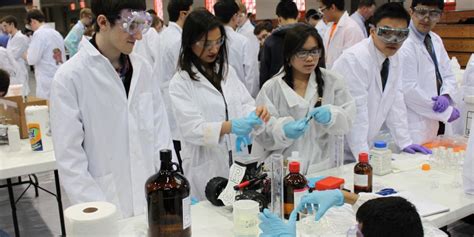Introduction
Chemical engineers at Rutgers are pioneering groundbreaking research in systems physiology, a cutting-edge field that bridges engineering and medicine. By integrating principles from biology, chemistry, and engineering, researchers are developing transformative technologies for healthcare, pharmaceuticals, and biotechnology.

The Rutgers Systems Physiology Initiative
The Rutgers Systems Physiology Initiative is a vibrant research hub that fosters interdisciplinary collaboration between chemical engineers, biomedical engineers, biologists, and clinicians. Here are some key highlights:
- Multi-Scale Modeling: Researchers develop computational models that simulate biological systems across multiple scales, from molecular interactions to organ function, enabling a comprehensive understanding of physiological processes.
- Sensor Development: They design and fabricate advanced sensors to monitor biological parameters in real-time, offering insights into disease progression and treatment efficacy.
- Tissue Engineering and Regenerative Medicine: By combining stem cells, biomaterials, and microfabrication techniques, researchers create bioengineered tissues for transplantation and regenerative therapy.
Applications of Systems Physiology in Chemical Engineering
The applications of systems physiology in chemical engineering extend to various industries:
- Healthcare: Developing personalized medicine approaches, optimizing drug delivery systems, and monitoring patient health in real-time.
- Pharmaceuticals: Designing and testing new drugs, understanding disease mechanisms, and improving drug safety and efficacy.
- Biotechnology: Creating bioengineered products for tissue repair, diagnostics, and alternative energy production.
Research Highlights
Rutgers researchers have made significant contributions to systems physiology research. Some notable achievements include:
- Development of a microfluidic device for real-time monitoring of cellular metabolism. This device enables researchers to study metabolic changes in living cells, providing valuable insights into disease progression and drug response.
- Creation of a computational model to predict the efficacy of cancer immunotherapy. This model helps clinicians optimize treatment plans and select the most effective immunotherapies for individual patients.
- Engineering of bioengineered heart tissue that mimics the electrical and mechanical properties of native tissue. This breakthrough holds potential for repairing damaged heart tissue and treating heart disease.
Future Directions and Innovation
The future of systems physiology in chemical engineering holds exciting possibilities. Researchers are exploring new frontiers such as:
- Organ-on-a-Chip: Developing microfluidic devices that mimic the function of entire organs, enabling drug testing and disease modeling in a controlled environment.
- Artificial Intelligence (AI): Applying AI algorithms to systems physiology data to identify patterns, predict outcomes, and optimize treatment plans.
- Personalized Medicine: Tailoring medical treatments to individual patients based on their unique genetic and physiological profiles.
Tables
| Application | Industry | Example |
|---|---|---|
| Personalized medicine | Healthcare | Developing tailored drug regimens based on individual patient profiles |
| Drug development | Pharmaceuticals | Optimizing drug efficacy and minimizing side effects using computational modeling |
| Tissue engineering | Biotechnology | Creating bioengineered scaffolds for bone and cartilage regeneration |
Tips and Tricks
- Join student organizations and research groups to gain hands-on experience in systems physiology.
- Attend industry seminars and conferences to stay updated on the latest advancements.
- Utilize online resources such as databases and journals to expand your knowledge base.
Pros and Cons
Pros:
- Interdisciplinary collaboration provides a comprehensive understanding of biological systems.
- Advanced technologies enable real-time monitoring and manipulation of physiological processes.
- Potential for transformative breakthroughs in healthcare and biotechnology.
Cons:
- Requires extensive expertise in multiple disciplines.
- Computational models can be complex and time-consuming to develop.
- Ethical considerations arise when manipulating biological systems.
FAQs
-
What are the career prospects for chemical engineers in systems physiology?
– Career opportunities exist in academia, industry, and research institutions. Graduates can pursue roles in biomedical engineering, drug development, and biotechnology. -
What are the prerequisites for studying systems physiology in chemical engineering?
– A strong foundation in chemistry, biology, and engineering is essential. Students should consider pursuing minors or graduate degrees in biomedical engineering or systems biology. -
How can I get involved in systems physiology research at Rutgers?
– Contact faculty members working in the field and explore opportunities for undergraduate research or graduate study. -
What are the key challenges facing systems physiology research?
– Integrating data from multiple scales and disciplines can be complex. Computational models may not fully capture the complexity of biological systems. Ethical considerations must be carefully navigated. -
What are the potential societal benefits of systems physiology research?
– Improved healthcare outcomes, reduced healthcare costs, and advances in pharmaceuticals and biotechnology. -
How does systems physiology contribute to the field of chemical engineering?
– It expands the scope of chemical engineering beyond traditional applications, providing a deeper understanding of biological systems and enabling the development of bio-inspired technologies.
